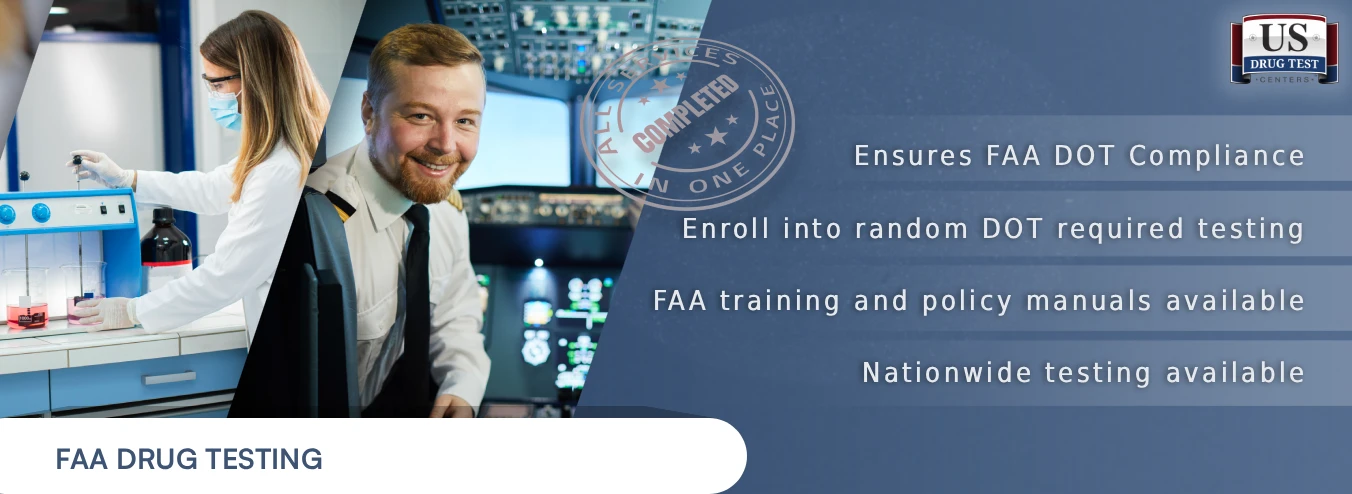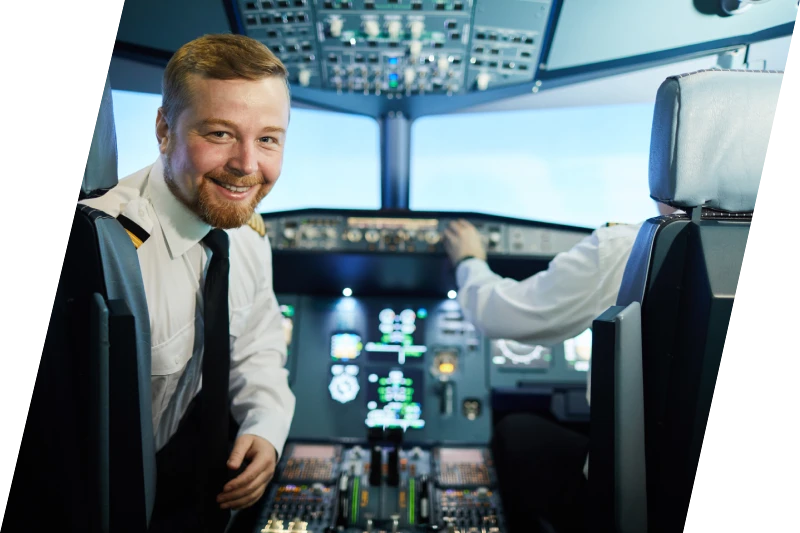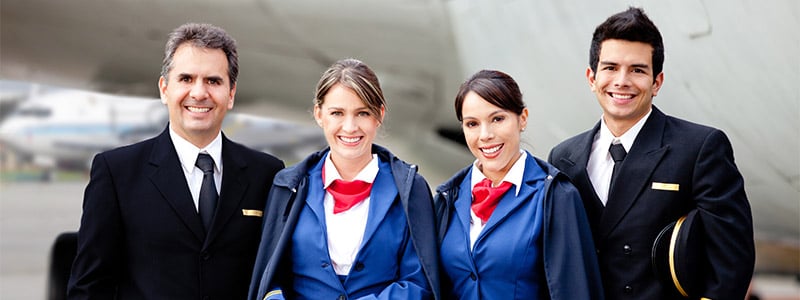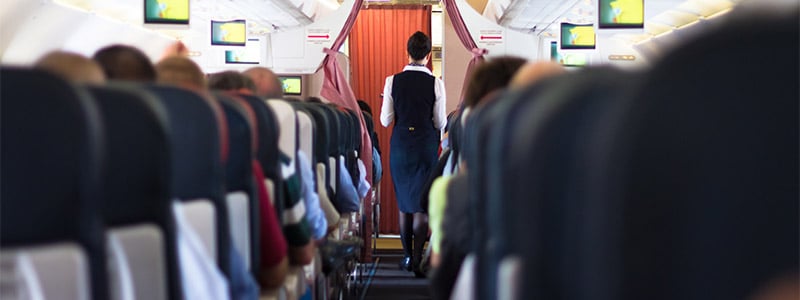
Last Updated: December 14, 2023

Employers regulated by the United States Federal Aviation Administration (FAA) are required to have a comprehensive drug and alcohol testing program. This includes air carriers and aircraft maintenance or preventive maintenance operations.
The Federal Aviation Administration required drug and alcohol testing programs fall under Department of Transportation (DOT) regulations 49 CFR Part 40. The DOT FAA drug test is required by the Omnibus Transportation Employees Testing Act of 1991 and by DOT and FAA regulations (49 CFR part 40 and 14 CFR part 120). The FAA Drug Abatement Division oversees the aviation industry's compliance with the drug and alcohol testing law and regulations.
FAA CFR Part 120 applies to the following employers:
An FAA-regulated company must appoint a Designated Employer Representative (DER) as the person in charge of the company’s drug and alcohol testing program. The DER shall be responsible for:
The Designated Employer Representative is an employee authorized to take immediate action to remove employees from (or have them removed from) safety-sensitive duties and to make required decisions in the testing and evaluation processes. The DER function cannot be outsourced.
The position of DER is a huge responsibility for a company employee. Fortunately, training for DERs is available. US Drug Test Centers can offer to DERs a comprehensive training program delivered by:
US Drug Test Centers can help you with the initial steps to develop and implement your FAA required drug and alcohol testing program.

There are many more requirements of the drug and alcohol testing regulations. US Drug Test Centers can help.
Remember that it’s not just airlines that must implement the FAA required drug and alcohol testing regulations. The Federal Aviation Administration's drug and alcohol testing regulations (14 CFR part 120) require any CFR Part 119 certificate holder that is authorized to operate under CFR Parts 121 and/or 135 to ensure that any person who performs safety-sensitive functions (e.g., maintenance or preventive maintenance), directly or by contract (including by subcontract at any tier), is subject to drug and alcohol testing. See boxes below for safety-sensitive positions and FAA testing requirements.
When hiring by contract, the air carrier must either:
1. Cover the contractor's safety-sensitive employees under its FAA drug and alcohol testing program; or
2. Ensure that the contractor has implemented its own FAA drug and alcohol testing program.
For expert consultation on FAA drug and alcohol testing programs and random testing consortiums, call 866-566-0261 or order your test online today!
Under the FAA program, a covered employee means an individual who performs, either directly or by contract, a safety-sensitive function listed in §§ 120.105 and 120.215 for an employer (as defined in paragraph (i) of this section). For purposes of pre-employment testing only, the term "covered employee" includes an individual applying to perform a safety-sensitive function.
The safety-sensitive functions in the FAA drug and alcohol testing are:
The FAA requires a strict educational program that includes:
Best practices to ensure compliance with education and training include:
US Drug Test Centers provides an easy-to-use computer-based online training program to help you with FAA drug and alcohol testing compliance.
Starting an FAA drug and alcohol testing program is not an easy task. US Drug Test Centers can provide expert assistance to get you started. US Drug Test Centers can act as your Consortium/Third-Party Administrator (C/TPA), a service agent that can implement the required components of the drug and alcohol testing program for you, the employer. We can provide the following services to help you to be in compliance with the FAA.
Source: https://www.transportation.gov/odapc/2021-MIS-DATA


Alcohol testing is required for all above except for pre-employment testing. This is optional.
The Federal Aviation Administration or the FAA strictly adheres to all required Department of Transportation or DOT drug and alcohol regulations in compliance with 14 CFR Part 120. One primary regulation includes being enrolled in a random consortium. All FAA covered employers and employees performing safety sensitive functions are required to be enrolled in a random drug and alcohol testing pool (also called a consortium), eligible for random selections throughout 4 quarters of the year. This random drug testing pool must meet a requirement of 50% drug testing and 10% alcohol testing annually. For more information, contact US Drug Test Centers today!
The Federal Aviation Administration or the FAA covers all operators or carriers certificated under CFR Part 119 of this chapter and authorized to conduct operations under CFR Part 121 and/or CFR Part 135. This also includes air traffic control facilities not operated by the FAA or by or under contract to the U.S. military, CFR Part 145 certificate holders who perform safety-sensitive functions and conduct drug and alcohol testing under CFR Part 120, all operators conducting sightseeing operations as defined in 14 CFR Part 91.147, and contractor who perform safety-sensitive functions conduct drug and alcohol testing under CFR Part 120. For more information, contact US Drug Test Centers today!